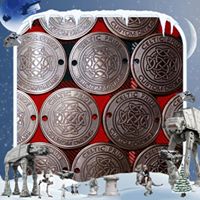What is a difference between an automotive gasoline engine and an automotive diesel engine?
Diesel engines have been used only for trucks for a long time, but now diesels are becoming popular elsewhere. They are not being adopted very quickly in the US, but such cars are used by a greater number of people nowadays.
There are a number of major differences between gasoline and diesel engines. Both types convert chemical energy from fuel into mechanical energy through a series of explosions, that's why the two types are quite similar in theory. These explosions happen in different ways, which represents the main difference between these engines.
Diesel engines are designed to operate at higher compression ratios, usually between 15 to 20, while gasoline (petrol) engines have lower compression ratios usually between 8 to 10. Diesel engines generally have a better fuel efficiency than gasoline engines. In diesel engines, the fuel and air mixture
In gasoline engines, there is a carburetor where the gas and air are mixed
Gasoline 'quality' is measured by Octane Rating. The
More Info:
en.wikipedia.org









